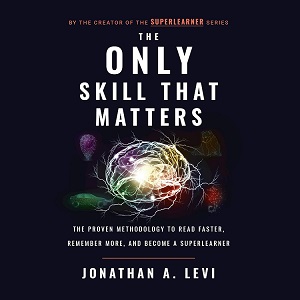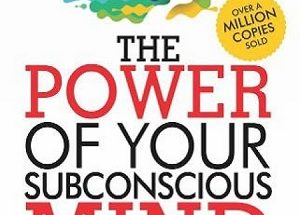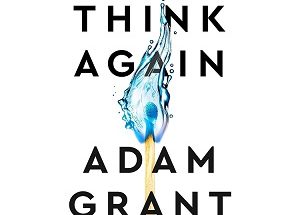Jonathan A. Levi’s book, The Only Skill That Matters, focuses on enhancing learning efficiency and mastering the skill of learning itself. Levi argues that learning how to learn is the most critical skill anyone can develop, as it allows individuals to acquire any other skill more quickly and effectively. Below are 20 lessons from the book:

Read: Get It Done
1. The Importance of Meta-Learning
Key Insight: Meta-learning, or learning how to learn, is the foundation of lifelong success. Levi emphasizes that the ability to learn quickly and efficiently is a competitive advantage in any field.
Actionable Tip: Start by understanding your learning style and preferences. Tailor your study methods to align with how you absorb information best.
2. Understanding the Science of Learning
Key Insight: The brain’s ability to form and strengthen neural connections, known as neuroplasticity, is central to effective learning. Levi explains how the brain adapts and changes in response to learning experiences.
Actionable Tip: Engage in regular learning activities that challenge your brain, such as puzzles, new languages, or complex subjects, to enhance neuroplasticity.
3. Speed Reading Techniques
Key Insight: Speed reading is a critical skill for processing information quickly. Levi introduces methods to increase reading speed while maintaining comprehension, such as minimizing subvocalization (the internal speech that slows down reading).
Actionable Tip: Practice techniques like skimming for main ideas, using a pointer (like your finger) to guide your eyes, and gradually increasing your reading speed.
4. Memory Enhancement Strategies
Key Insight: Effective memory techniques, such as mnemonic devices and the method of loci (memory palaces), are essential for retaining and recalling information. Levi explains how to use these strategies to boost memory performance.
Actionable Tip: Create visual associations and mental “locations” for the information you need to remember, making it easier to retrieve later.
5. Active Recall and Spaced Repetition
Key Insight: Active recall and spaced repetition are powerful tools for reinforcing memory. Levi emphasizes that these techniques are more effective than passive review or cramming.
Actionable Tip: Use flashcards or apps like Anki to implement spaced repetition, ensuring you review information at optimal intervals to reinforce learning.
6. Optimizing Focus and Concentration
Key Insight: Maintaining focus and concentration is crucial for effective learning. Levi discusses the importance of eliminating distractions and creating an environment conducive to deep work.
Actionable Tip: Implement techniques like the Pomodoro Technique (working in focused intervals with breaks) to enhance concentration and prevent burnout.
7. The Role of Diet and Exercise in Cognitive Performance
Key Insight: Physical health, particularly diet and exercise, significantly impacts cognitive function and learning ability. Levi highlights the importance of a balanced diet rich in omega-3 fatty acids, regular physical activity, and adequate sleep.
Actionable Tip: Incorporate brain-boosting foods (like fish, nuts, and leafy greens) into your diet, exercise regularly, and prioritize sleep to support optimal brain function.
8. Mind Mapping and Visualization
Key Insight: Mind mapping and visualization are powerful tools for organizing and understanding complex information. Levi shows how these techniques can enhance creativity and problem-solving.
Actionable Tip: Create mind maps to visualize relationships between concepts and ideas, helping to clarify your understanding and boost retention.
9. Overcoming Learning Plateaus
Key Insight: Learning plateaus, where progress seems to stall, are common and can be overcome with the right strategies. Levi suggests breaking through plateaus by varying your learning methods and challenging yourself with new material.
Actionable Tip: If you hit a plateau, try different learning approaches, like teaching the material to someone else or applying the knowledge in a practical setting.
10. The Power of Curiosity and Lifelong Learning
Key Insight: Cultivating curiosity and committing to lifelong learning are crucial for staying relevant and adaptable. Levi encourages a mindset that embraces continuous learning as a way of life.
Actionable Tip: Follow your curiosity, explore new topics regularly, and seek out learning opportunities in everyday life to stay engaged and motivated.
11. Developing a Growth Mindset
Key Insight: A growth mindset, the belief that abilities can be developed through effort and learning, is essential for overcoming challenges and achieving success. Levi draws on Carol Dweck’s work to emphasize the importance of adopting a growth mindset.
Actionable Tip: Embrace challenges as opportunities to grow, view failures as learning experiences, and persist in the face of setbacks.
12. Leveraging Technology for Learning
Key Insight: Technology can significantly enhance learning efficiency. Levi discusses how tools like online courses, apps, and digital resources can support and accelerate learning.
Actionable Tip: Use technology to supplement your learning, such as enrolling in online courses, using educational apps, or accessing digital libraries.
13. Learning Through Teaching
Key Insight: Teaching others is one of the most effective ways to solidify your understanding of a subject. Levi explains that the process of teaching forces you to clarify and organize your knowledge.
Actionable Tip: Teach what you learn to others, whether through formal teaching, tutoring, or simply explaining concepts to friends or family.
14. Time Management for Learning
Key Insight: Efficient time management is crucial for maximizing learning. Levi emphasizes the importance of prioritizing learning activities and avoiding time-wasting habits.
Actionable Tip: Schedule dedicated learning time each day and use tools like to-do lists or planners to manage your time effectively.
15. Setting and Achieving Learning Goals
Key Insight: Clear learning goals provide direction and motivation. Levi discusses the importance of setting specific, measurable, and achievable goals for your learning journey.
Actionable Tip: Break down your learning objectives into smaller, manageable goals, and regularly track your progress to stay on course.
16. Building a Supportive Learning Environment
Key Insight: The environment in which you learn can significantly impact your success. Levi stresses the importance of creating a space that is conducive to focused study and free from distractions.
Actionable Tip: Designate a specific area for learning that is quiet, comfortable, and well-organized, and eliminate potential distractions from this space.
17. Overcoming Procrastination
Key Insight: Procrastination is a major obstacle to effective learning. Levi explores the psychological reasons behind procrastination and offers strategies to overcome it.
Actionable Tip: Break tasks into smaller steps, set clear deadlines, and use techniques like the “two-minute rule” (if a task takes less than two minutes, do it immediately) to combat procrastination.
18. Mindfulness and Learning
Key Insight: Mindfulness practices can enhance focus, reduce stress, and improve cognitive function, making them valuable tools for learning. Levi advocates incorporating mindfulness into your daily routine to support learning.
Actionable Tip: Practice mindfulness exercises, such as deep breathing or meditation, before studying to clear your mind and improve concentration.
19. The Role of Purpose and Motivation
Key Insight: Having a clear purpose and strong motivation is essential for sustained learning. Levi argues that understanding the “why” behind your learning goals can drive long-term commitment and success.
Actionable Tip: Reflect on your reasons for learning a particular subject or skill and keep this purpose in mind to stay motivated.
20. Continuous Review and Iteration
Key Insight: Learning is an ongoing process that requires continuous review and iteration. Levi emphasizes the importance of regularly revisiting material and refining your learning strategies.
Actionable Tip: Set aside time for regular review sessions, and be open to adjusting your learning methods based on what works best for you.
Conclusion
By applying these lessons from The Only Skill That Matters, you can master the art of learning itself, empowering you to acquire new skills and knowledge more efficiently and effectively. This not only accelerates personal and professional growth but also enhances your ability to adapt in a rapidly changing world (Amazon).


